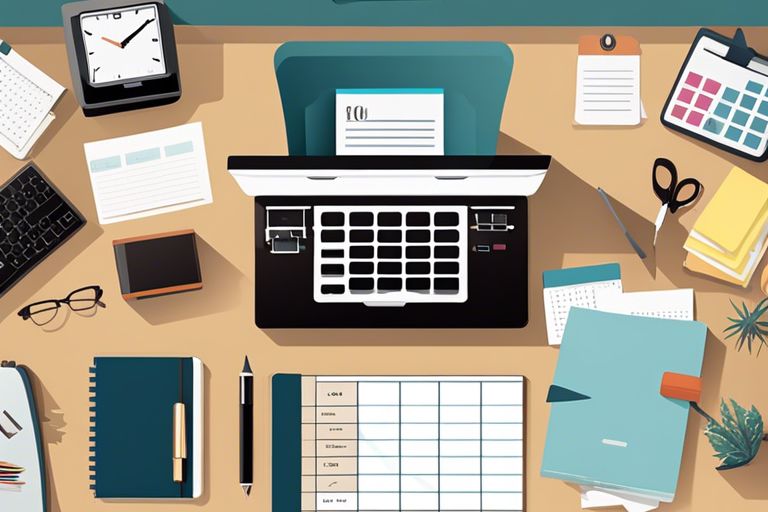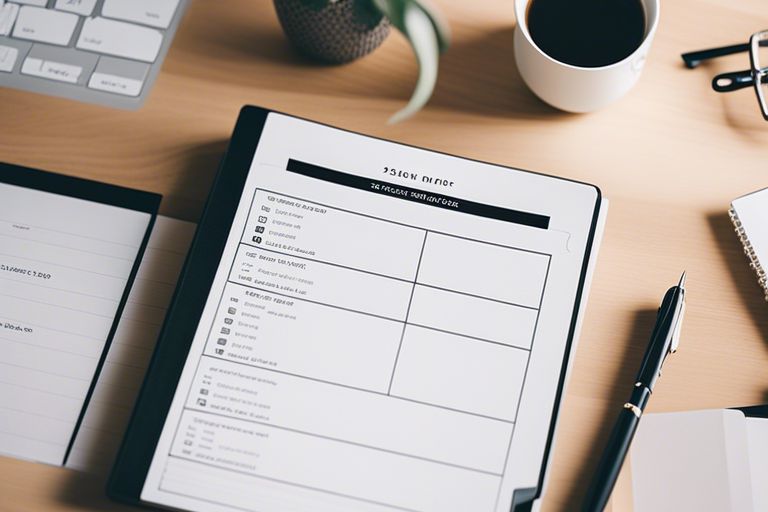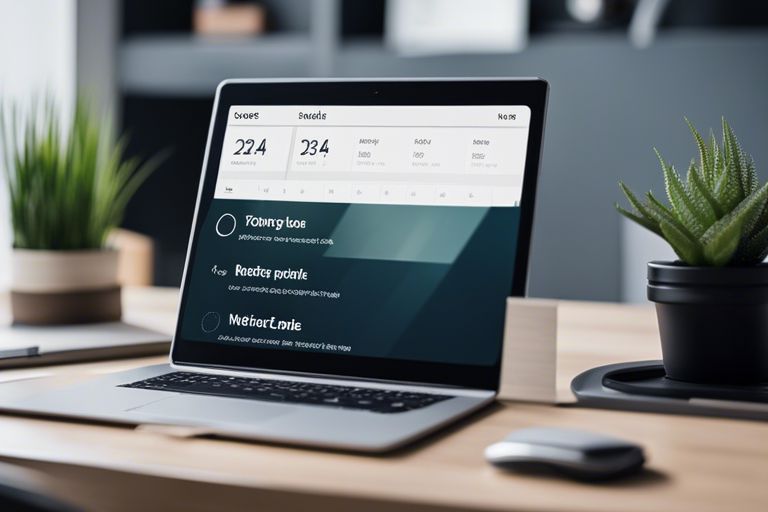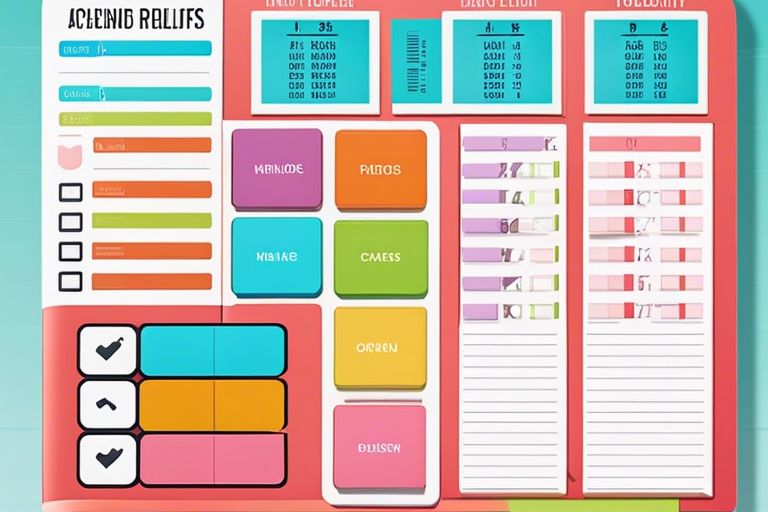Do you often find yourself overwhelmed with your daily tasks, feeling like you’re constantly playing catch-up? You’re not alone. Many people make critical mistakes when it comes to organizing their daily tasks, leading to inefficiency and stress. One of the most dangerous mistakes is trying to do too much at once, leading to burnout and incomplete tasks. Another common mistake is not prioritizing your tasks effectively, causing important deadlines to be missed. Additionally, failing to break down larger tasks into smaller, manageable steps can make them seem insurmountable. In this blog post, we’ll discuss the most common mistakes people make when organizing their daily tasks and provide strategies on how to avoid them, ultimately leading to a more productive and efficient daily routine.
Common Mistakes in Organizing Daily Tasks
A common mistake when organizing daily tasks is to underestimate the time available, overestimate the duration of each task, fail to prioritize tasks, neglect breaks and personal time, and ignore task sequencing and dependencies. In this chapter, we will discuss each of these mistakes in detail and provide tips on how to avoid them.
Overestimating Time Available
One of the most common mistakes people make when organizing their daily tasks is overestimating the amount of time they have available. This often leads to overcommitting and feeling overwhelmed. To avoid this mistake, it’s important to realistically assess how much time you have each day and to allocate your tasks accordingly. Make sure to leave some buffer time for unexpected interruptions and delays.
Underestimating Task Duration
Another mistake is underestimating the amount of time each task will take. This can lead to a rushed and stressful day as you try to cram too much into too little time. To avoid this, it’s essential to accurately estimate how long each task will take and to allocate sufficient time for completion. It’s better to overestimate than to underestimate task duration.
Failing to Prioritize Tasks
It’s easy to fall into the trap of tackling tasks as they come, without considering their relative importance. Failing to prioritize can result in important tasks being left until the last minute or even forgotten. To avoid this mistake, take the time to assess your tasks and prioritize them based on their urgency and importance. This will help you focus on what truly matters.
Neglecting Breaks and Personal Time
Many people make the mistake of working non-stop, neglecting breaks and personal time in the belief that it will make them more productive. However, this often leads to burnout and decreased productivity in the long run. It’s crucial to schedule regular breaks and allocate time for personal activities to recharge and maintain a healthy work-life balance.
Ignoring Task Sequencing and Dependencies
Ignoring the sequence and dependencies of tasks can lead to inefficiency and overlapping deadlines. It’s important to consider the order in which tasks need to be completed and any dependencies between them. By carefully sequencing your tasks and considering dependencies, you can ensure a smoother and more efficient workflow.

Effective Strategies for Daily Task Organization
For effective daily task organization, it’s important to have reliable strategies in place to help you manage your time and productivity. Two popular methods that can help you stay on track and accomplish more in your day are the Pomodoro Technique and the Time Blocking Method.
The Pomodoro Technique
If you find yourself easily distracted or struggling to stay focused on your tasks, the Pomodoro Technique may be the solution you need. This method encourages you to work in short, intense bursts, typically 25 minutes, followed by a short break of 5 minutes. After four cycles, you take a longer break, around 15-30 minutes. This focused work followed by short, regular breaks can help improve your concentration, and prevent burnout and mental fatigue. By breaking your day into these time intervals, you can boost productivity while still giving yourself short, regular periods of rest.
Time Blocking Method
The Time Blocking Method is all about allocating specific blocks of time for different tasks or activities. This approach involves scheduling and dedicating a set amount of time to work solely on a particular task or project without interruptions. By allocating dedicated time slots, you minimize multitasking and increase focus on the task at hand. By planning your day and assigning specific time blocks to different activities, you can improve efficiency and time management and enhance your ability to concentrate on one thing at a time. It also provides a clear visual of how you’re spending your time, allowing you to evaluate and optimize your schedule.
Tools for Enhancing Task Organization
Despite your best efforts, keeping track of daily tasks can be challenging. Luckily, there are several tools available to help enhance your task organization. By utilizing these tools, you can streamline your daily workflow and increase your productivity.
Digital To-Do Lists and Task Managers
When it comes to digital task organization, there are countless options available to you. From dedicated to-do list apps to comprehensive task managers, these digital tools offer a range of features to help you stay on top of your daily responsibilities. With the ability to set reminders, prioritize tasks, and collaborate with others, digital tools can be a game-changer for your task organization. The most important thing to keep in mind is to choose a tool that suits your specific needs and preferences.
Traditional Paper-Based Planners
While digital tools have gained popularity in recent years, there is still something to be said for the simplicity and tangibility of traditional paper-based planners. Writing down your tasks and goals by hand can help solidify them in your mind and provide a sense of satisfaction when you physically check off completed items. However, it is important to note that the downside of paper-based planners is the lack of flexibility and collaboration features compared to digital tools. Be mindful of your tendency to overlook or neglect tasks in a paper planner, as it can be dangerous for your overall organization. When it comes to choosing a planner, look for one that fits your lifestyle and offers the features you need to stay organized.

Developing a Tailored Daily Organization Plan
Your daily organization plan should be tailored to suit your individual work patterns and preferences. By developing a plan that is specific to your needs, you can maximize your productivity and efficiency.
Analyzing Individual Work Patterns
When developing your daily organization plan, it’s important to take into account your individual work patterns. Do you work best in the morning or are you more productive in the afternoon? Do you prefer to tackle challenging tasks first or do you work better when you ease into your day? Analyzing your work patterns will help you create a schedule that aligns with your natural rhythms and allows you to make the most of your peak productivity hours. Remember to be honest with yourself about your work habits and preferences, as this will help you create a plan that is realistic and effective.
Integrating Flexibility and Contingency Time
While it’s important to have a plan in place for your daily tasks, it’s equally important to integrate flexibility into your organization plan. Unexpected interruptions and delays are a part of everyday life, so it’s crucial to build in contingency time to account for these situations. By allowing for some flexibility in your schedule, you can adapt to changes and avoid feeling overwhelmed when things don’t go as planned. Incorporating contingency time into your daily organization plan will help you stay on track and maintain a sense of control even when unexpected events arise.
The most common mistakes to avoid when organizing daily tasks
The most common mistakes people make when organizing daily tasks include not prioritizing, overcommitting, and failing to delegate. Failing to prioritize your tasks can result in wasting time on less important activities and neglecting crucial ones. Overcommitting can lead to feelings of overwhelm and burnout, while failing to delegate can lead to an excessive workload and decreased productivity. To avoid these mistakes, you should prioritize your tasks based on importance and urgency, be realistic about what you can accomplish in a day, and be willing to delegate tasks to others when necessary. By addressing these common mistakes, you can improve your daily organization and increase your overall productivity.








